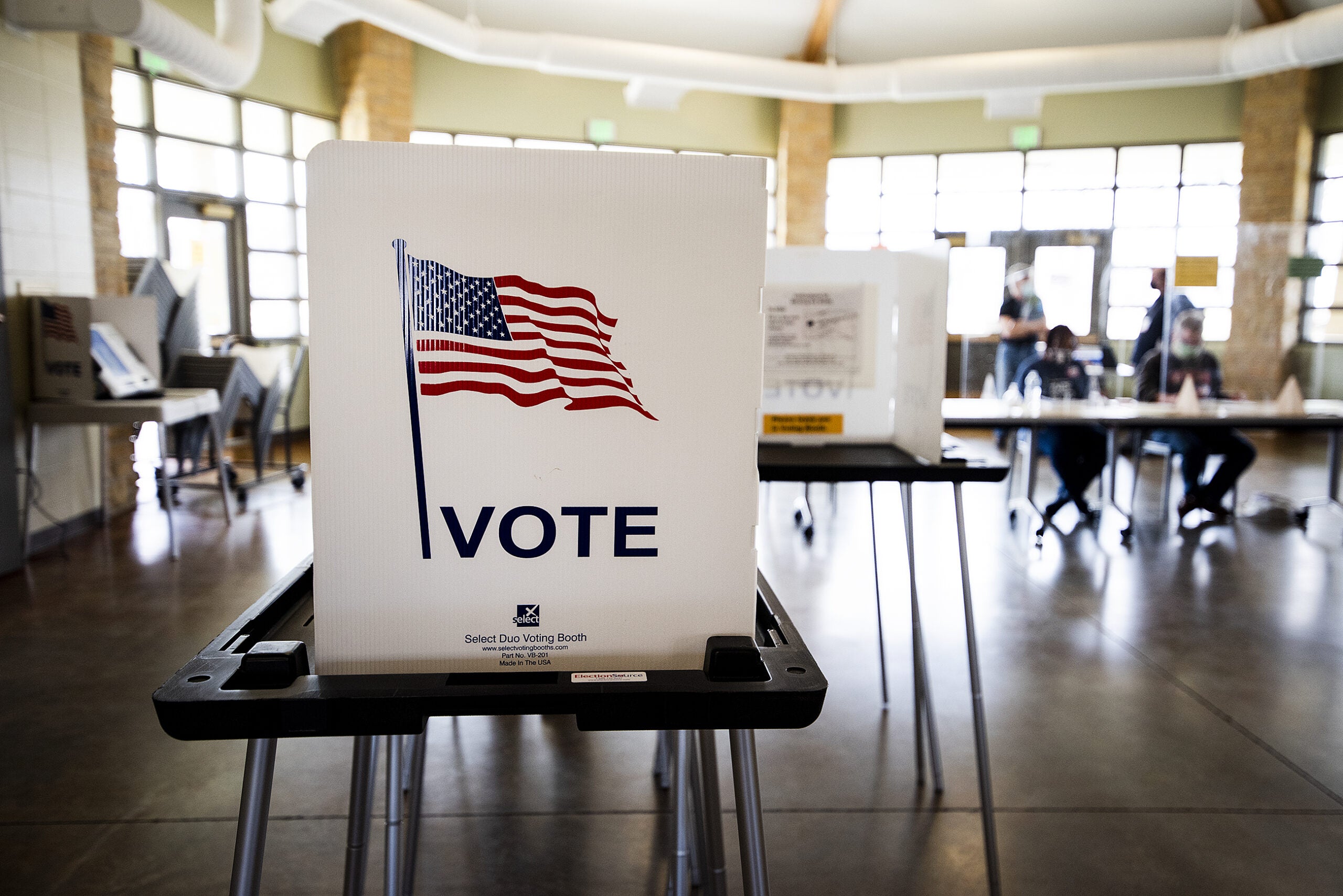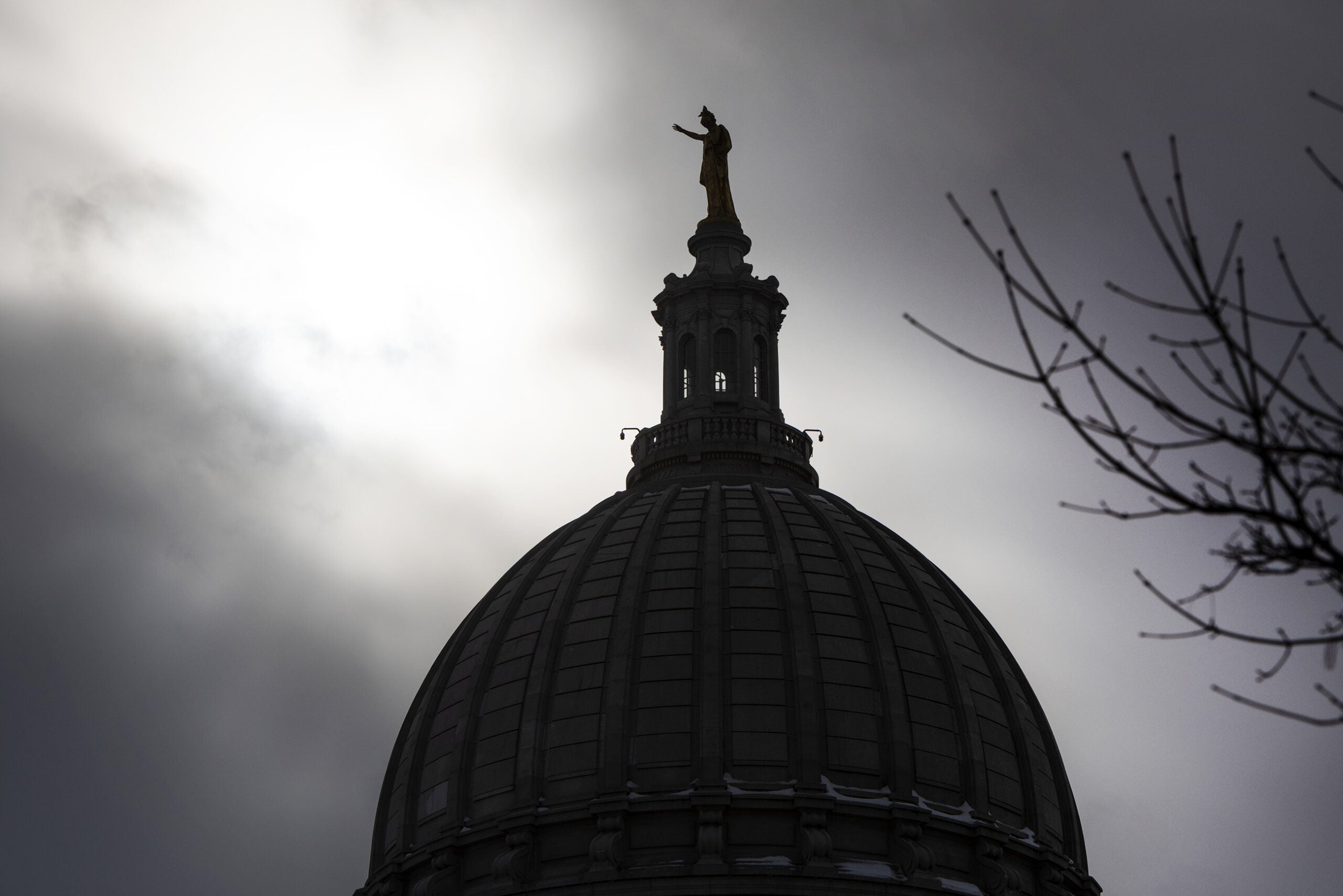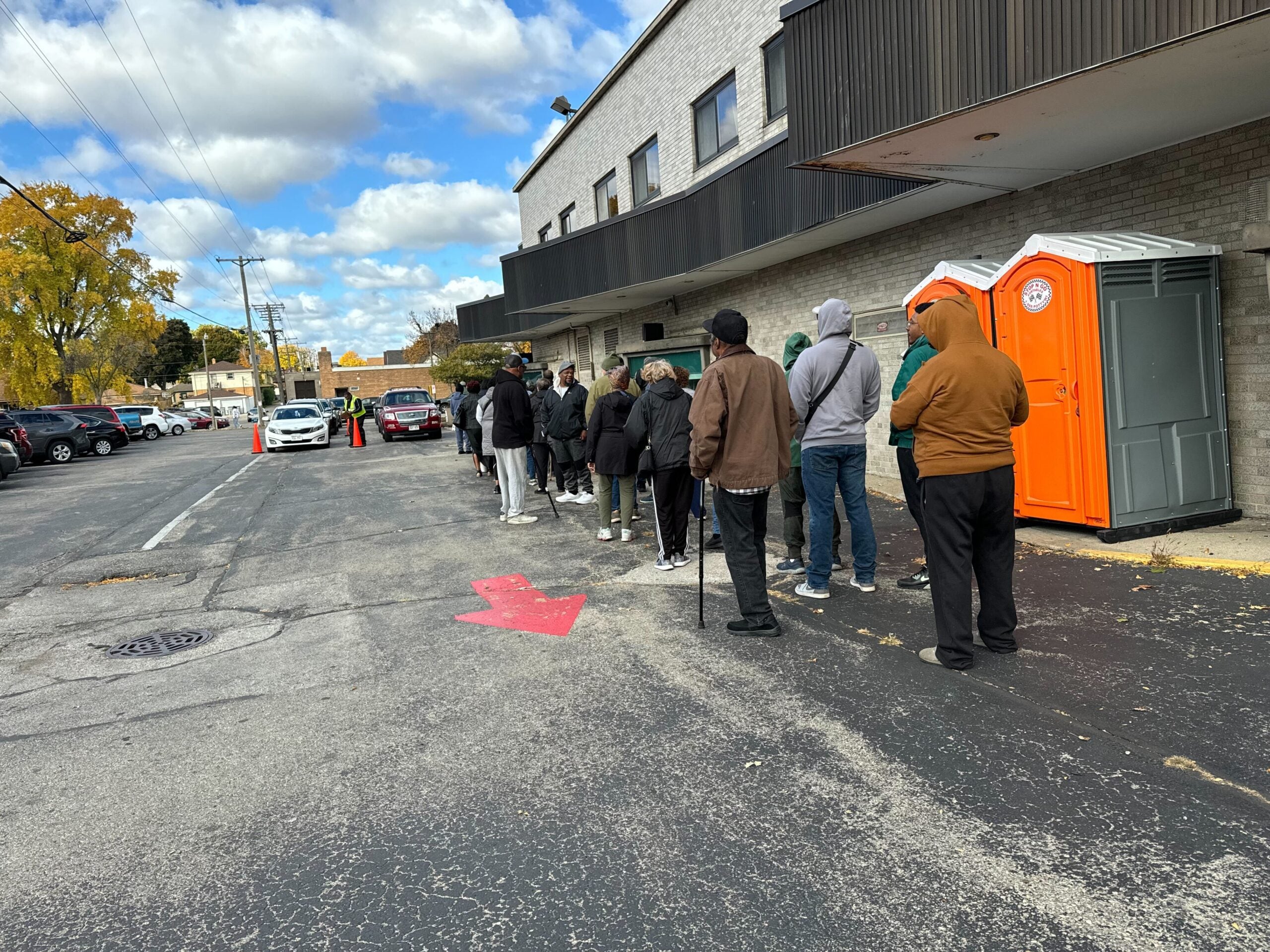Less than two weeks before Election Day, former President Barack Obama was in Milwaukee to deliver closing arguments for Wisconsin Democrats in the midterm elections. Speaking to a packed high school gymnasium, he had Democrats roaring as he talked about the economy, abortion rights and helping people pay their bills.
Then he turned to an issue that’s not at the top of every voter’s mind.
“If you do need another reason to vote,” Obama said, “consider the fact that democracy is on the ballot.”
Stay informed on the latest news
Sign up for WPR’s email newsletter.
Obama spoke at length about democracy — about how life had changed since the Jan. 6 insurrection and how it would be dangerous if self-governance is lost. For Democrats, the warnings are a way to mobilize voters who might stay home in a midterm election.
But underpinning this talk is the hard reality that if Republicans win the race for governor, or win a veto-proof majority in the Legislature, they will indeed change the way elections are run in Wisconsin, a state that’s as politically divided as they come. And while they typically describe it as “election integrity,” it motivates their base, too.
“There could likely be big changes to election law in Wisconsin between 2022 and 2024,” said Barry Burden, a professor of political science and director of the Elections Research Center at the University of Wisconsin Madison. “There’s an array of things that have been proposed in not very concrete ways.”
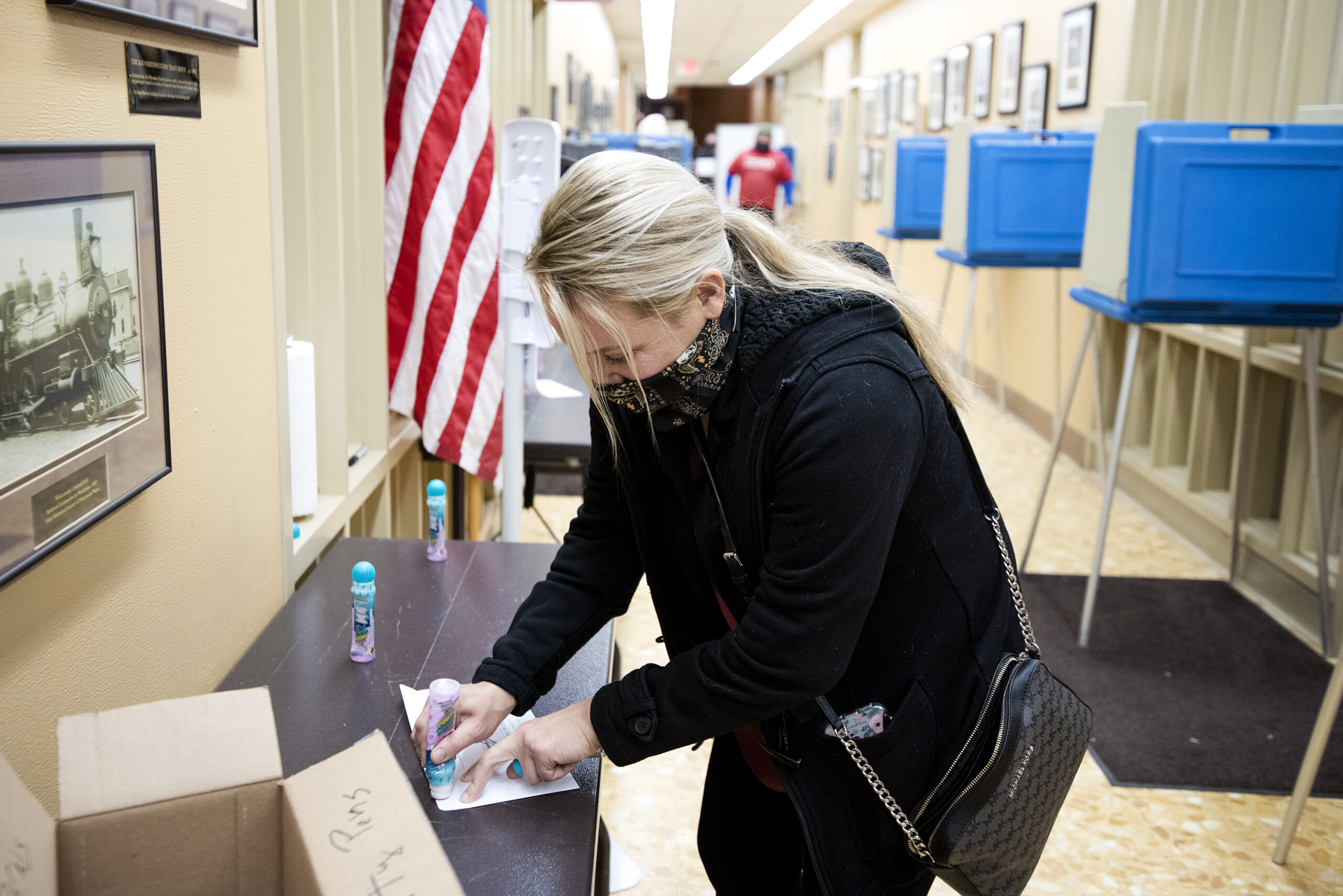
Michels said he’d eliminate the Wisconsin Elections Commission, but not what would replace it
Should Michels defeat Democratic Gov. Tony Evers and win the governorship, he has promised to eliminate the Wisconsin Elections Commission. How Michels and the Legislature would replace it remains unclear.
“There are really no limits on what the Legislature could do in terms of creating a new structure,” Burden said.
Wisconsin’s last Republican governor, Scott Walker, created the WEC when he and GOP legislators dissolved the state’s Government Accountability Board, which they claimed had become too partisan in favor of Democrats.
The WEC is run by six commissioners, three of whom are appointed by Republicans and three of whom are picked by Democrats. The 3-3 split leads to plenty of tie votes on the Commission.
This gridlock was by design. Walker and Republicans said giving Democrats and Republicans an equal number of seats at the table would make sure both parties had an equal voice on controversial issues. When an issue was perceived to favor one party over the other, that 3-3 split would cancel it out.
But during the COVID-19 pandemic, the WEC took bipartisan votes on a handful of big issues that were later criticized by Republicans.
For example, early in the pandemic, commissioners voted to not allow special voting deputies into nursing homes to help residents cast absentee ballots out of concerns that they might spread the coronavirus. Commissioners also voted unanimously to send absentee ballot applications to roughly 2.7 million registered voters, another move that was later criticized by Republicans.
Despite that criticism, GOP lawmakers have so far stood by the WEC. In January, Senate Majority Leader Devin LeMahieu, R-Oostburg, said he thought the way the agency was structured could still work.
“I would need to see a more superior way to do it before abandoning that,” LeMahieu said.
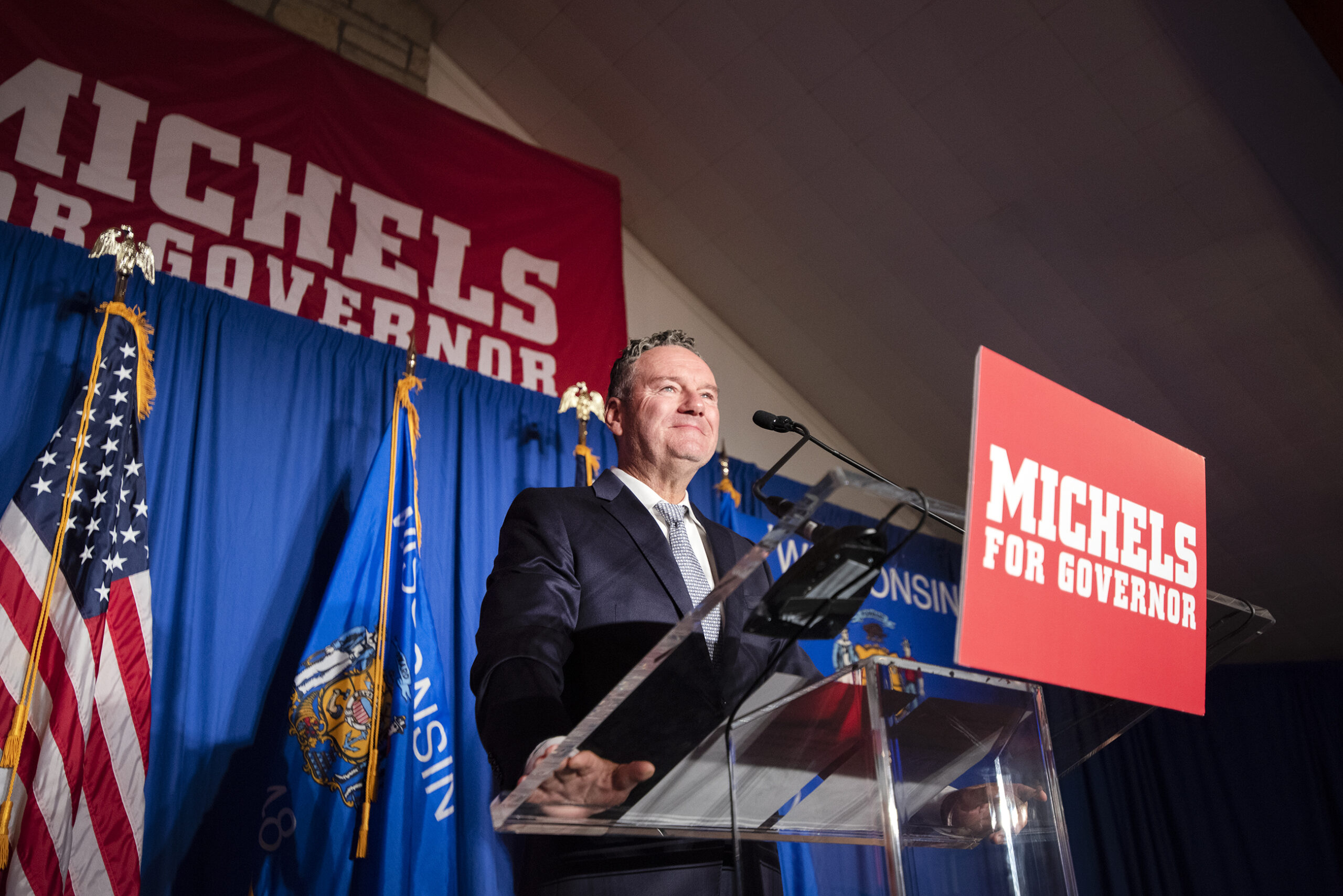
During a campaign stop in Middleton Thursday, Michels offered a hint at what the new agency would look like if he’s governor.
“I’m going to call it the ‘Wisconsin Election Integrity Group,’” Michels told reporters. “It’ll have representation from all eight congressional districts.”
But Michels didn’t say who would choose those members, and Burden said there would be nothing preventing Republicans from giving themselves more power over running elections.
“It would be permitted because they write the law,” Burden said.
Burden said GOP lawmakers could also decide to get rid of the WEC board altogether and appoint an individual to oversee elections. They could also choose to give some power over elections to the Wisconsin Secretary of State if a Republican wins that office this year.
Commissioner Ann Jacobs, one of three Democratic appointees who sit on the WEC, said she worries the Legislature will empower itself to run federal elections, an idea suggested last year by Republican U.S. Sen. Ron Johnson. She said the idea was considered “fringe” until recently.
“The biggest concern I have is taking away from the people the right to elect their representatives and placing it solely in the hands of the Legislature,” Jacobs said. “I think that would be a devastating blow to democracy in Wisconsin.”
The U.S. Supreme Court has agreed to hear a case that argues state lawmakers have the power to run federal elections without any checks and balances from governors or state courts.
Rick Esenberg, the president and general counsel for the conservative Wisconsin Institute for Law and Liberty, says there are many ways Wisconsin could structure its elections, including its selection of presidential electors.
“There’s no requirement that can even be done by popular vote. But I think that’s what the people want,” Esenberg said.
Controversial Republican report on the 2020 election called for scaling back absentee voting
Last year, under pressure from former Republican President Donald Trump, Assembly Speaker Robin Vos, R-Rochester, hired former Supreme Court Justice Michael Gableman to conduct an investigation of the 2020 election.
Gableman’s final report grabbed attention when it called on lawmakers to consider decertifying the election, a move favored by Trump that election law experts say is impossible.
But tucked into Gableman’s recommendations was another big recommendation that got far less attention, where Gableman called on lawmakers to “Minimize Pre-Voting.”
“If public oversight of absentee voting is too burdensome,” Gableman wrote, “a better option is to prioritize traditional, in-person voting.”
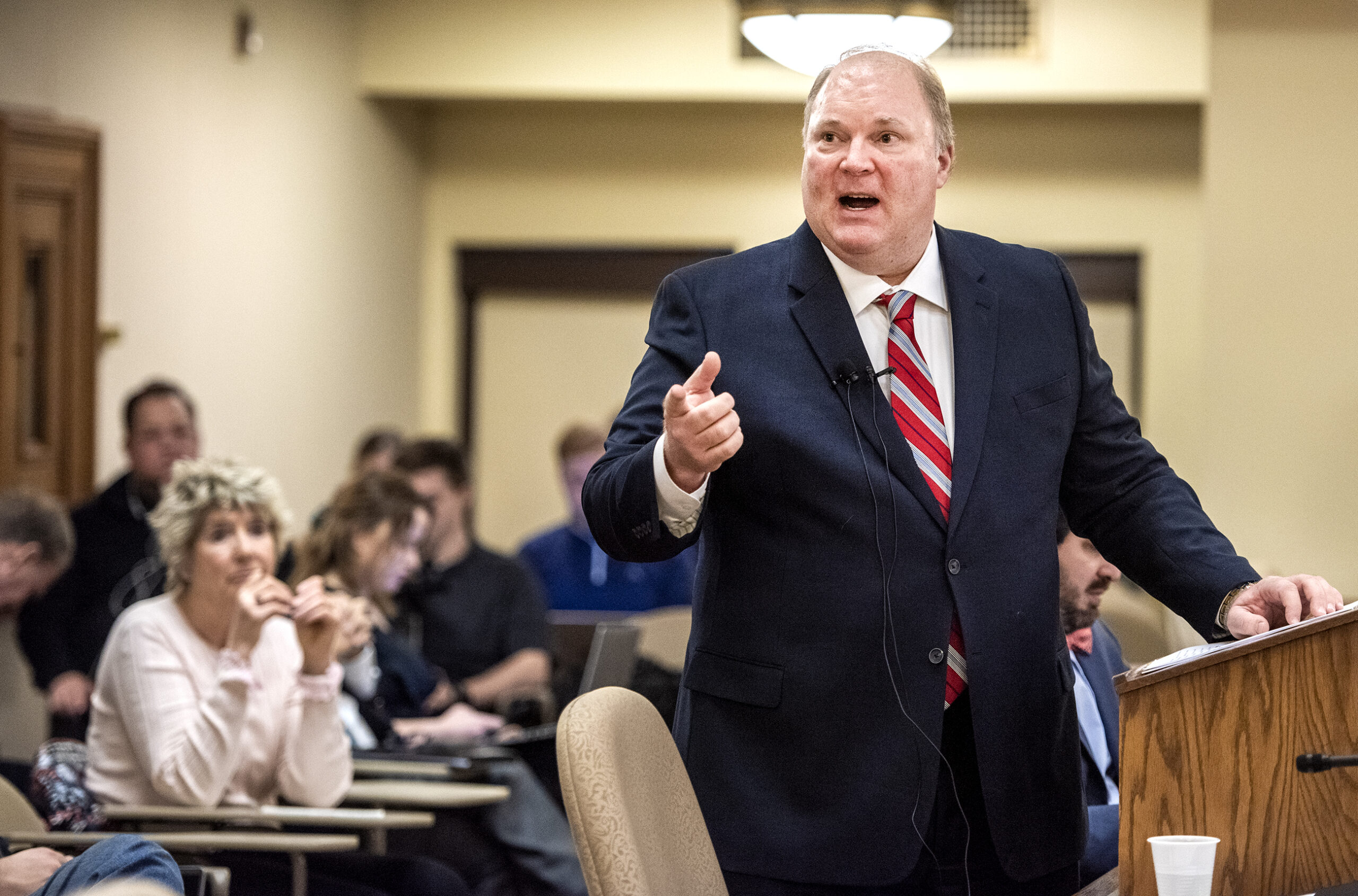
Wisconsin has what’s known as no-excuse absentee voting. If people want to vote absentee, they can, as long as they follow the laws for requesting and returning ballots. They don’t have to have a special reason for not voting at the polls.
It’s been wildly popular in Wisconsin, especially in the 2020 presidential election when nearly 2 million residents voted absentee amid a spike in coronavirus infections.
Gableman has since been fired by Vos after Gableman endorsed Vos’ primary opponent and recorded a robocall on his behalf.
But Gableman remains influential in Republican politics. When Trump visited the state in August to campaign for Michels, he gave repeated shout-outs to Gableman, who was also in the crowd.
“I want to thank you, Michael, for being here, but I want to thank you much more importantly for the job you’ve done,” Trump said. “That’s an incredible report you put out.”
Trump is expected to run for president again in 2024. Gableman was also in the crowd when another potential GOP presidential candidate, Florida Gov. Ron DeSantis, visited Wisconsin.
Jacobs said it would be a mistake for Republicans to scale back absentee voting in Wisconsin.
“I think that the exact opposite of the way the entire United States is going, it’s the exact opposite of what voters want,” Jacobs said.
Esenberg said he doesn’t think it will happen.
“Voter convenience is probably going to win out with these elected officials,” Esenberg said.
Spokespersons for Vos and LeMahieu did not respond to emails asking whether they would support Gableman’s recommendation. Michels has talked about limiting specific types of absentee voting, including by people who claim to be “indefinitely confined” under Wisconsin law.
Republicans have already passed bills to change voting laws. Michels has vowed to sign them.
There’s no need to guess what Republicans would do on some election issues because they’ve already shown people.
GOP lawmakers passed nearly 20 bills last session that would have made a variety of changes to the way elections are run, in some cases making absentee voting more difficult and making the Legislature more powerful. Evers vetoed the plans and Michels has said he would sign them.
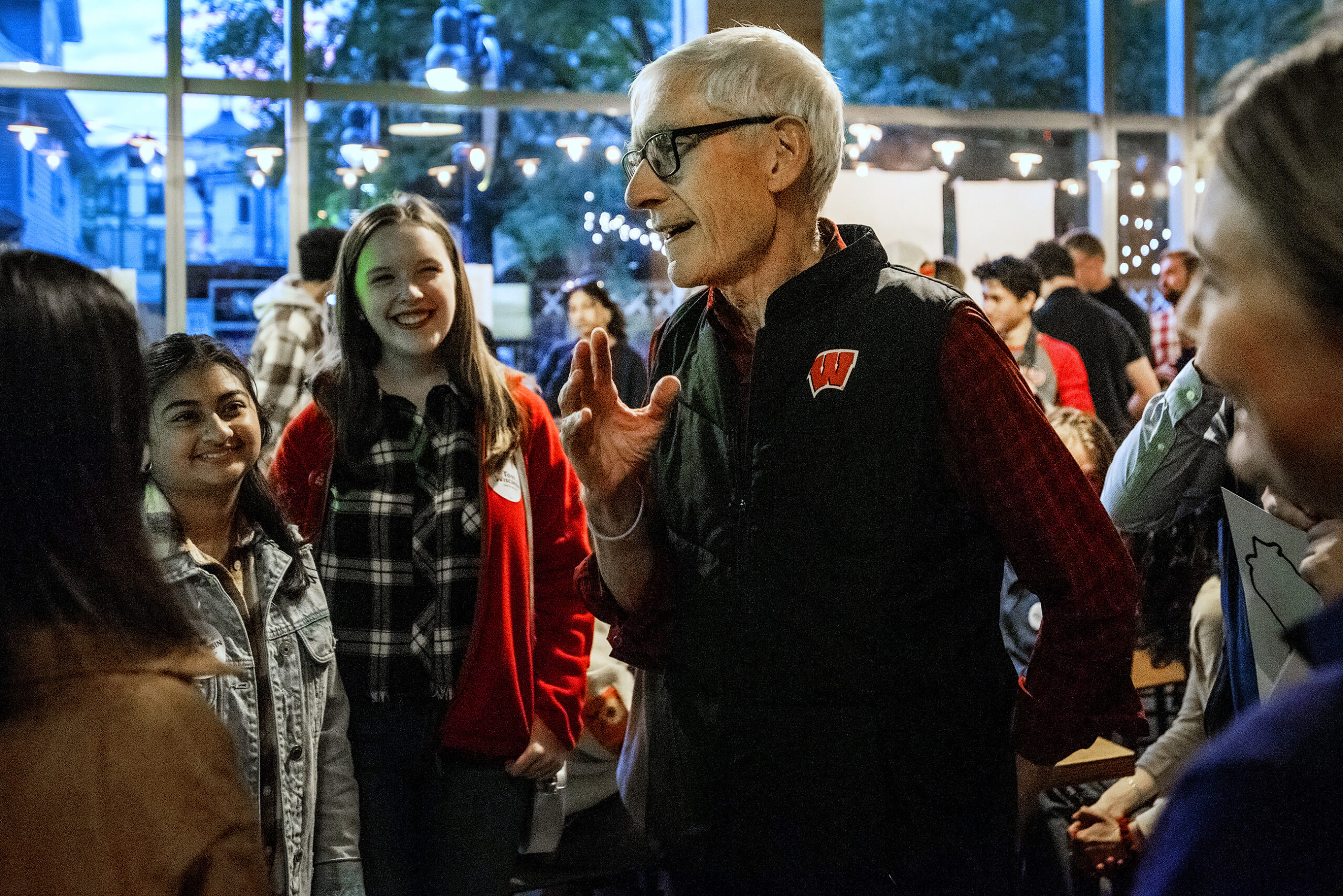
They included bills that would have:
- Banned private election grants like the ones funded by Facebook founder Mark Zuckerberg in the 2020 election.
- Limited the sites where people can return absentee ballots and restricted who can return them.
- Banned mailing absentee ballot applications — a step the bipartisan Wisconsin Elections Commission took unanimously in 2020.
- Made it illegal for clerks to fill in missing information on absentee ballot witness certificates (a policy later enacted later by a Waukesha County judge).
- Made the Legislature more powerful by giving state lawmakers more power to block federal election guidance and giving the Legislature’s rules committee more power to block Wisconsin Election Commission guidance.
- Let district attorneys from contiguous counties charge people for election law violations.
- Restricted who can claim to be an “indefinitely confined” voter, a status that lets people vote absentee without showing their photo ID each time.
Wisconsin isn’t the only state where GOP lawmakers have pushed to restrict private election grants, a top priority of Republicans, including Trump. In Wisconsin, hundreds of communities received funding from the grants, though several million dollars of it went to the state’s largest cities.
The most vocal GOP critics of the funding argue that it was aimed at driving up turnout for Democratic voters, but Burden said clerks used it to offset the cost of running an election during the pandemic. For example, it was used to increase poll worker pay, buy protective equipment and pay for high-speed vote tabulators in the city of Milwaukee.
“If private funding is not available, and the state doesn’t provide public funding to make up for it, I think clerks who run elections would certainly feel it,” Burden said. “And that would trickle down to voters as well.”
If Evers wins another term, and Republicans fall short of a two-thirds majority they’d need to override a governor’s veto, those bills likely aren’t going anywhere, and Wisconsin could maintain the status quo when it comes to elections.
Whatever happens will be scrutinized in a state where four out of the last six presidential elections have been decided by less than a percentage point.
Wisconsin Public Radio, © Copyright 2025, Board of Regents of the University of Wisconsin System and Wisconsin Educational Communications Board.
